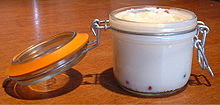Hi I’m Sandra E Sinclair and I live in London UK. I’ve only
been writing historical romance since October 2016. One of the things I really
love about writing historical romance is the fact finding mission I have to go
on. Even more so as I’m writing about the history of our sister nation, the
United States of America.
A place I’ve only visited a few times. But a country filled
with a glorious and interesting history. Built on the backs of a melting pot of
countries, cultures and people. A true free world. Where only the strong survived,
through wit, grit and determination.
During this research, I discovered my new hobby and passion outside
of my love for writing historical romantic westerns.
Candle
making.
I got caught up in what they lacked in a world with very
little technology as we see it all around us today. This got me wondering about
lighting and how well it was addressed in the old days—leading to my
fascination about candles, the rulers of the night for thousands of years.
A SHORT
HISTORY OF CANDLE MAKING
The most curious of things was how candle making was developed
independently all over the world using different methods, all leading to the
same outcome. That outcome, of course, is a continues stream of light
sustaining a flame over a longer period of time.
In 221 BC China during the
Qin Dynasty they used Whale blubber.
Image By Susanna Haas - originally posted to Flickr as maktuk
up close, CC BY-SA 2.0, https://commons.wikimedia.org/w/index.php?curid=3889163
Early China and Japan, also used tapers, which were made with
wax from insects and seeds, wrapped in paper and burned.
The Romans in (500 BC) used tallow, which is rendered from
beef or mutton fat.
Image By FotoosvanRobin - originally posted to Flickr as
Niervet in potje met zout en peperkorrels, CC BY-SA 2.0, https://commons.wikimedia.org/w/index.php?curid=4262091
It’s said that the Egyptians were the earliest known inventers
as they used rushlights (touches), which were made by dipping a pithy core of
reeds in melted animal fat. Although these weren’t true candles, as they were
wrapped around sticks. Later, the Egyptians created true candles using beeswax,
and crafted the first candle holders from clay.
Candles made of beeswax in
Germany 6th/7th c. AD
By Bullenwächter - Landesmuseum Württemberg, CC BY-SA 3.0, https://commons.wikimedia.org/w/index.php?curid=19881978
Candles made from beeswax today.
By photo by User:Ejdzej, figures by Teresa and Czesław
Niedźwiedzki - Own work, CC BY-SA 3.0, https://commons.wikimedia.org/w/index.php?curid=1302875
I really could go on about this topic forever but I will leave
something for my next visit with you all. I’m Sandra Sinclair signing off, and I
hope you found what I had to share for now interesting.
Where to find me.
Twitter - @sandybclean - https://twitter.com/sandybclean
Amazon author page - https://www.amazon.com/Sandra-E-Sinclair/e/B01M9BBAQY/ref=sr_ntt_srch_lnk_1?qid=1488083182&sr=1-1





Welcome. Candles are useful and beautiful. There was a candle making factory near where I grew up. Believe it or not, they are still in business. https://www.dadantcandles.com/ I remember visiting there when I was young. Fascinating. Doris
ReplyDeleteThank you Doris, yes it is amazing, but I'm not surprise they are still in business. Candles are beautiful things, and the lighting from them can be so romantic and soothing. I make my own and buy loads and loads. It might be me single handedly keeping that factory going :-) have an awesome day.
Delete